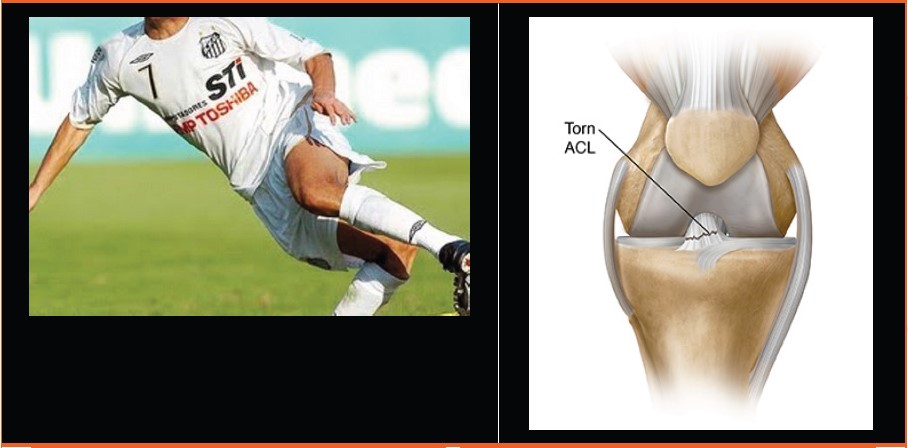Topic: Anterior Cruciate Ligament (ACL) Injuries
An ACL injury involves the tearing of the anterior cruciate ligament (ACL) in the knee, an important ligament that provides rotational stability for the knee. There are three types of ACL injuries: Grade 1, Grade 2, and Grade 3. A Grade 1 sprain is when the ligament is slightly stretched, but has no tear and is still able to keep the knee stable. A Grade 2 sprain is when the ligament stretches and is partially torn, causing the joint to be unstable. A complete tear of the ligament is called a Grade 3 sprain, and the knee is completely unstable. ACL tears occur most commonly in athletes, affecting women more than men for the same sport. Sudden shifts of direction, incorrect landings, and sudden stops are a few causes of this injury. Symptoms include swelling and tenderness, pain and discomfort, and loss of a range of motion. Treatments include both surgical and non-surgical options with rehabilitation. Physical therapy programs focus on regaining a full range of motion for the joint and surrounding muscles. Strengthening programs are also used to get athletes back to full functionality.

